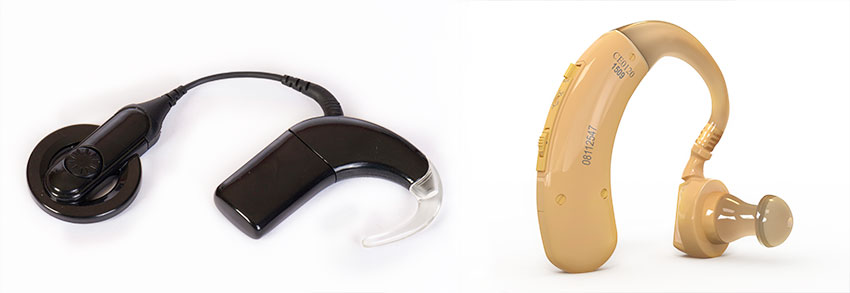Effects of Severe Hearing Loss in Adults
15 March 2019
Losing the ability to hear the world around you can be distressing. In this article, we will discuss hearing loss and its possible impacts on an individual’s personal, social, and professional lives.
How Hearing Loss Affects Adults
Individuals suffering from hearing loss have reported experiencing headaches, muscle tension, fatigue, and increased stress and blood pressure levels, as they have to work harder to follow and understand normal conversations and interactions. Individuals may also experience bouts of anger and frustration when communication problems arise and, if worsened, can lead to isolation, social withdrawal, depression, and anxiety. Apart from these effects, one of the more detrimental physical risks is developing dementia in the long run, as its risk heightens depending on the severity of the individual’s hearing loss.
Effects of Hearing Loss in Education and Employment
Inability to hear and perceive sounds can greatly affect educational achievements as individuals may find it harder to develop the necessary speech, reading, and language skills in a conventional classroom. Unfortunately, educational achievements contribute to the number of career opportunities in one’s adult life and the lack of the former may result in greater vocational difficulties. Hearing-impaired individuals who do have jobs, however, still struggle with communication issues at work especially when it comes to speech-related tasks like calls, videoconferencing, group discussions, and presentations. They also share that unsupportive supervisors and working environments can lead to social isolation.
Effects of Hearing Loss in Social Life
Hearing loss has been associated to several social interaction problems as hearing-impaired individuals may lack the speech and language skills necessary in daily conversation with others. Inability to hear properly may also result in communication disruptions and poor perception of meaningful cues and sounds, either from other people or surrounding objects. Psychological distress can arise in an individual when constantly faced with these perceptual errors, to the point of affecting loved ones who are closely involved.

A cochlear implant (left) and a typical hearing aid (right).
If you (or a loved one) are suffering from any degree of hearing loss, know that there are several options of treatment available to help you gain the life you deserve to hear. Get evaluated today by a hearing loss specialist to find out which solution works best for you.
Article sources:
Ambert-Dahan, E, Laouenan, C, Lebredonchel, M, Borel, S, Carillo, C, Bouccara, D, Sterkers, O, Ferrary, E, & Mosnier, I 2018, ‘Evaluation of the impact of hearing loss in adults: Validation of a quality of life questionnaire’, European Annals of Otorhinolaryngology, Head and Neck diseases, vol. 135, no. 1, pp. 25-31.
Dobie, RA & Van Hemel, S 2004, Hearing Loss: Determining Eligibility for Social Security Benefits, National Academies Press (US), Washington.
Hear Net Online (2019), Effects of Hearing Loss, viewed 27 February 2019, https://hearnet.org.au/hearing-loss/effects-of-hearing-loss
Oyler, AL 2012, ‘Untreated Hearing Loss in Adults – A Growing National Epidemic’, American Speech-Language-Hearing Association, viewed 27 February 2019, https://www.asha.org/articles/untreated-hearing-loss-in-adults/






